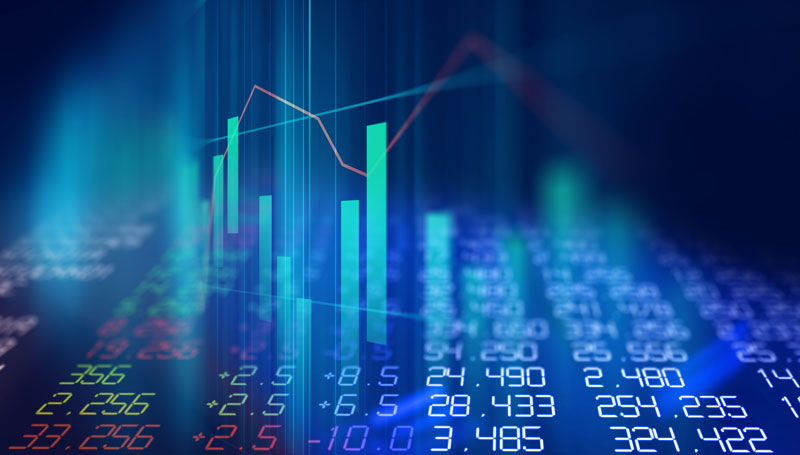

30.01.2020 – Daily Report. The buyers are turning over: The corona virus weakens their defenses. The Fed does not want to lower interest rates – despite the threat of a slowdown in the global economy due to the epidemic. And the disease is spreading.
DAX, futures, oil plunge
The recent recovery has fizzled out: the DAX plunged 1 percent to 13,210 points on Thursday. And once again our advice to the friends of chart analysis: Yesterday the DAX fell almost exactly on the 50-day line and better not close below it today. The US futures also fell by about half a percent. Oil was under pressure again – prices slipped by 1.4 percent. A barrel of WTI cost 52.56 dollars, Brent was traded for 58.06 dollars.
The fear of the epidemic persists
Once again, the fear of the rapidly spreading corona virus threw investors off course. China has now reported 170 deaths, and India also reported the first death. Deutsche Bank analysts warned of effects on the global economy – these would tend to be much greater than in SARS. Since 2003, China’s share in the global economy has more than tripled.
The Nikkei in Tokyo closed 1.7 percent lower at 22,978 points. The Hang Seng in Hong Kong lost 2.6 percent to 26,4490 jobs. There was again no trading on the Chinese mainland stock exchanges due to the Chinese New Year. A foretaste of what could happen after the reopening was provided by Taiwan’s Taiex index, which fell by more than 5 percent.
Phase 1 is in danger
The disease could also affect the trade deal between China and the USA. Trade adviser Peter Navarro told CNBC that existing US tariffs on Chinese goods remained in place despite the virus. We think: A bitter blow for the already ailing economy in the Middle Kingdom. Appropriately, Zhang Ming of the Chinese Academy of Social Sciences, which is close to the state, judged in the magazine “Caijing” that the growth of the Chinese economy in the first quarter could fall below 5 percent. Last year the Chinese gross domestic product had climbed by 6.1 percent.
Which brings us to the question of how Beijing is to buy 200 billion dollars worth of goods in the USA, as envisaged under Phase 1, if the domestic producers themselves are starving. In fact, the South China Morning Post blew that very horn.
New York hesitates
In the USA, brokers had held back the previous evening. The Dow Jones Industrial ended trading almost unchanged at 28,734 points. The S&P 500 fell 0.1 percent to 3,273 points. And the Nasdaq Composite saved a small plus of 0.1 percent to 9,275 points. Particularly bitter: According to comments by the Fed, the indices gave up their previous gains.
Powell is reluctant
In fact, Jerome Powell disappointed the market with his statements after the interest rate decision. As expected, the key rate remained unchanged for the second time in a row. But Powell was dissatisfied with the inflation trend in the US. The Lord of the Money made it clear that the Fed would stick to its course and not – as US President Donald Trump repeatedly demanded – pursue a laxer monetary policy.
But maybe that will change soon. Powell called the corona virus a “serious issue” that is likely to slow down the economies of China and Japan and possibly the global economy. After all, he announced that he would be supporting the interbank market with repo auctions at least throughout April – which should prevent a freeze on credit supply and a crisis in the US banking market.
Tension at Sterling
Meanwhile, traders in the British pound are waiting for today’s meeting of the Bank of England at 13:00. – the exit is more open than ever before. Most investors expect an interest rate cut of 25 basis points. However, a “once and once only” signal could stabilize the pound.
What the day brings
In the USA it gets exciting at 14.30 if you trade CFDs or online US stocks – or even the dollar and treasuries. Because that’s when the US GDP for the fourth quarter is reported; and also the weekly initial applications for unemployment benefits.
The Bernstein-Bank wishes successful trades!
Important Notes on This Publication:
The content of this publication is for general information purposes only. In this context, it is neither an individual investment recommendation or advice nor an offer to purchase or sell securities or other financial products. The content in question and all the information contained therein do not in any way replace individual investor- or investment-oriented advice. No reliable forecast or indication for the future is possible with respect to any presentation or information on the present or past performance of the relevant underlying assets. All information and data presented in this publication are based on reliable sources. However, Bernstein Bank does not guarantee that the information and data contained in this publication is up-to-date, correct and complete. Securities traded on the financial markets are subject to price fluctuations. A contract for difference (CFD) is also a financial instrument with leverage effect. Against this backdrop, CFD trading involves a high risk up to the point of total loss and may not be suitable for all investors. Therefore, make sure that you have fully understood all the correlating risks. If necessary, ask for independent advice.
